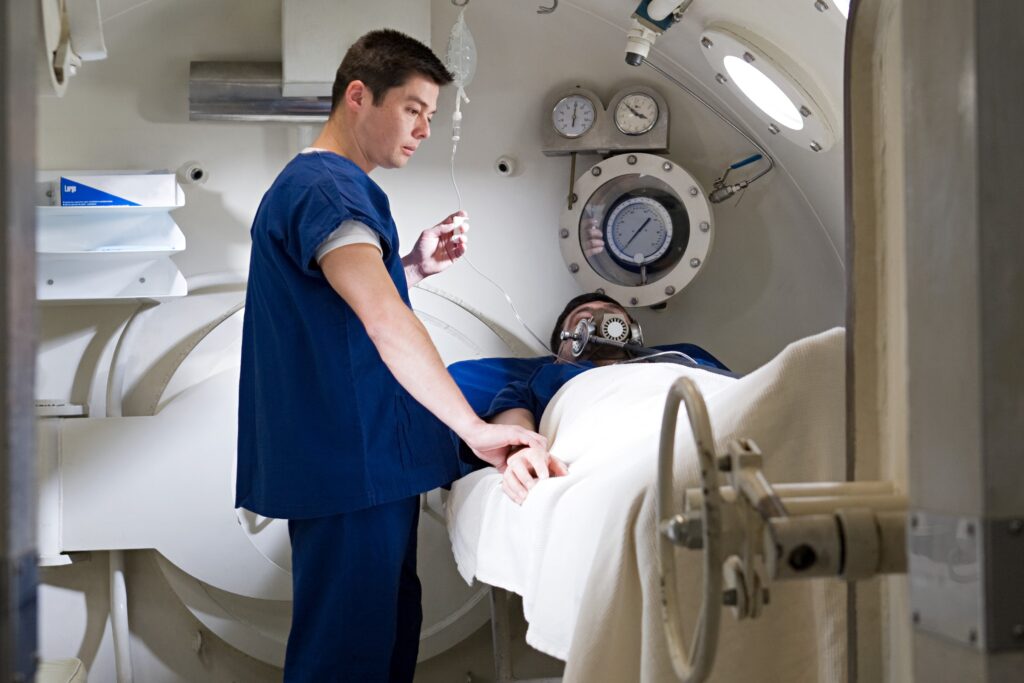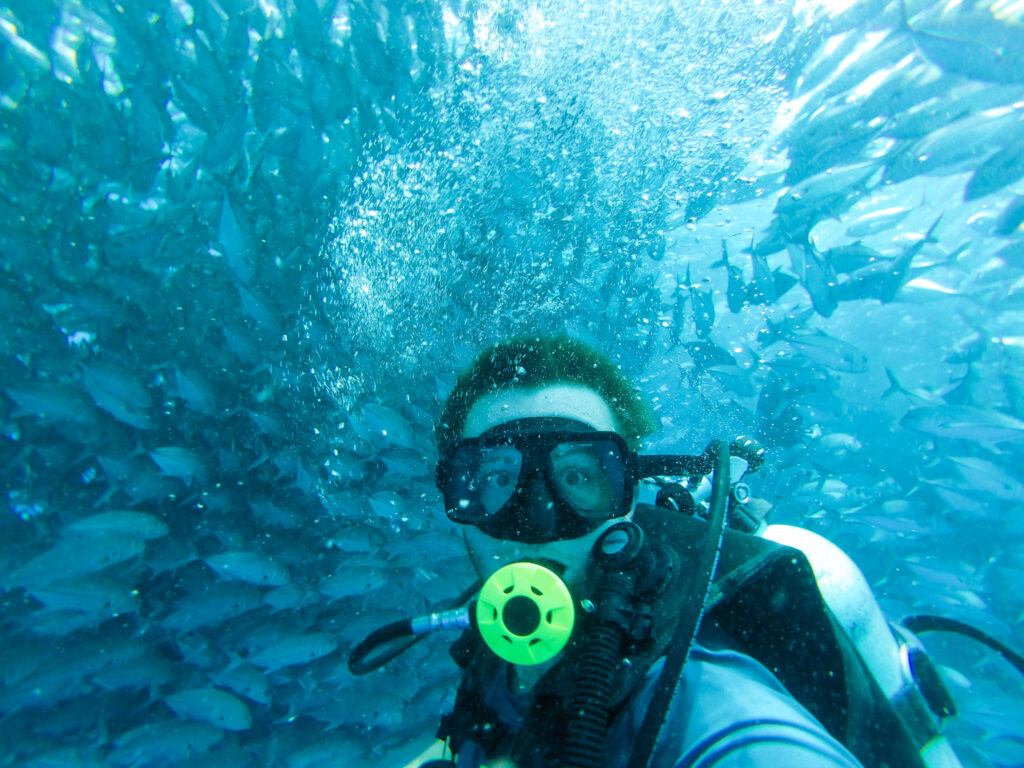What is Decompression Sickness (DCS)?

What is Decompression Sickness (DCS)? Decompression sickness, commonly referred to as DCS or “the bends,” is a medical condition that occurs in scuba divers when they ascend too rapidly or fail to follow proper decompression procedures during their dive. The condition results from dissolved nitrogen gas leaving the body tissues and forming bubbles when the […]
What is Arterial Gas Embolism (AGE)?

Arterial Gas Embolism (AGE) is a potentially fatal complication that can occur during scuba diving, characterized by gas bubbles entering the arterial circulation. When these gas bubbles block blood vessels, particularly in the brain or heart, it can lead to immediate symptoms and rapid clinical deterioration.
What is High Pressure Nervous Syndrome (HPNS)?

High Pressure Nervous Syndrome (HPNS) is a neurological and physiological condition that affects individuals exposed to high-pressure environments, primarily encountered during deep-sea diving and underwater activities. It is a critical issue for divers, particularly those engaging in dives deeper than 150 meters (492 feet), where the effects of high pressure on the human body become increasingly pronounced. Understanding HPNS is essential for ensuring the safety and well-being of divers operating in extreme underwater conditions, as it can significantly impact their performance and health.
What is Vertigo?

Vertigo, a sensation of spinning or dizziness, can significantly impact one’s sense of balance and orientation. In the context of scuba diving, this condition becomes particularly relevant and potentially hazardous. Divers who experience vertigo underwater may struggle with maintaining their equilibrium, which can lead to disorientation and dangerous situations. This article delves into the causes, impacts, diagnosis, prevention, and management of vertigo specifically for scuba divers.
What is a Reverse Squeeze?

What is a Reverse Squeeze? A “Reverse Squeeze” is a phenomenon experienced by scuba divers when ascending from a dive, where an inability to release pressure from enclosed spaces in the body results in pain or discomfort. These enclosed spaces typically include the sinuses, the middle ear, and the area inside the diving mask. Underlying […]
What is Arterial Gas Embolism (AGE) from Scuba Diving?

What is Arterial Gas Embolism (AGE) from Scuba Diving? Arterial gas embolism (AGE) is a type of decompression illness that occurs in scuba diving, characterized by the formation of gas bubbles in the arterial blood supply. This serious condition can result from trapped air expanding in the lungs, causing ruptures and barotrauma. AGE can have […]
What is Alternobaric Vertigo in Scuba Diving?

What is Alternobaric Vertigo in Scuba Diving? Alternobaric vertigo, commonly experienced by scuba divers, is a form of dizziness induced by unequal pressure changes in the middle ear. Though typically mild and short-lived, it can occasionally persist and cause complications if not properly addressed. This entry will explore the causes, symptoms, prevention, and management strategies […]
